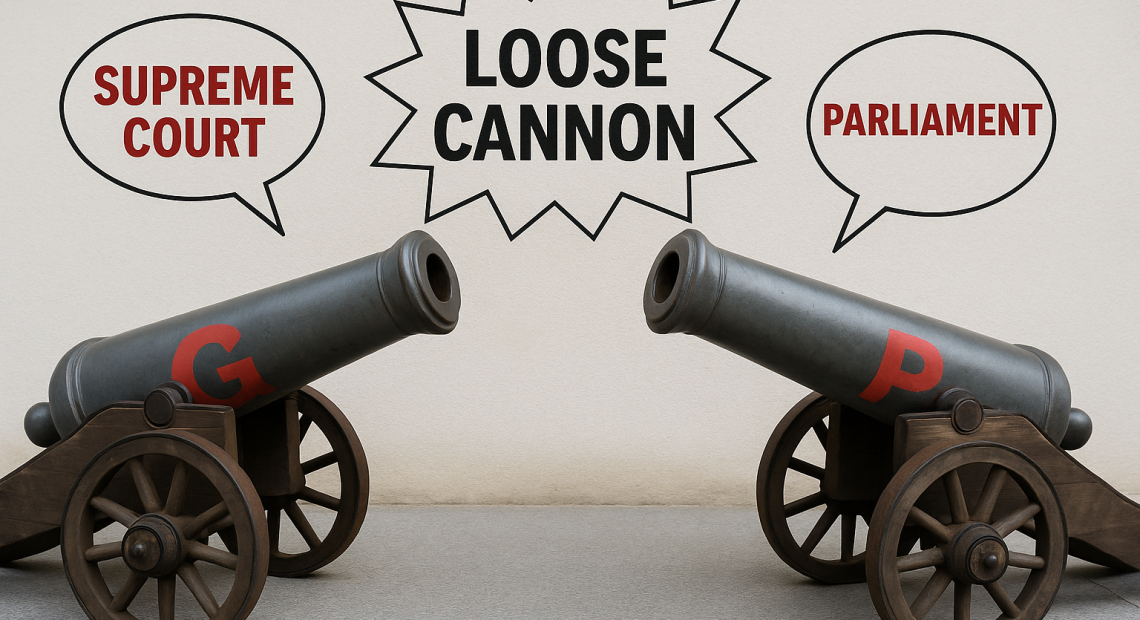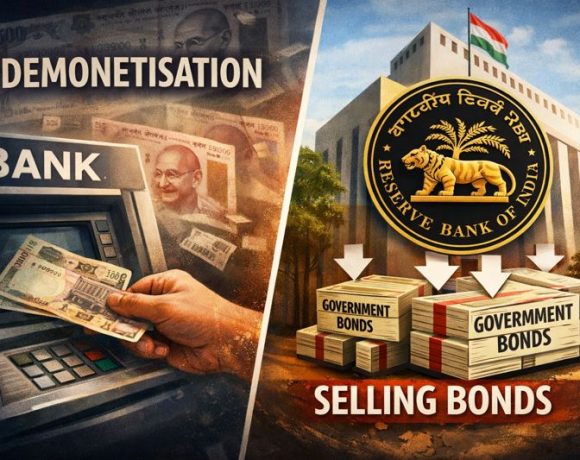
Loose Cannons in High Office: A Tale of Two G’s — Gavai and Gadkari
India’s most important institutions are supposed to inspire confidence through dignity, restraint, and sober words. The Supreme Court and the Union Cabinet aren’t reality shows where the loudest soundbite wins. Yet, two men — Chief Justice of India B. R. Gavai and Union Minister Nitin Gadkari — have developed an unfortunate knack for proving otherwise. They are the nation’s two “G’s,” and not in a way anyone should celebrate. Both seem incapable of resisting the urge to slip into loose-cannon territory, turning solemn offices into a stage for cringe-inducing remarks.
Let’s begin with CJI Gavai. Recently, he declared that the bulldozer verdict gave him “immense satisfaction.” Judges are expected to speak through judgments, not emotions. They are custodians of neutrality, not cheerleaders for their own decisions. By proclaiming personal satisfaction, Gavai blurred the line between judicial reasoning and personal bias. It was less the voice of the Constitution and more the sound of a man congratulating himself. For citizens looking to the Supreme Court as the last refuge of impartial justice, that sounded disturbingly close to judicial grandstanding.
Then came his “go ask your god” quip. This wasn’t the solemn voice of a Chief Justice but the rhetorical jab of a politician on a campaign stage. A CJI should be the embodiment of institutional dignity, not a soundbite factory competing with TV anchors for viral clips. When the head of the judiciary speaks like a debater on a street corner, the gravitas of the institution collapses into the noise of the crowd. In a single remark, Gavai managed to shrink the Supreme Court’s image from a constitutional guardian to a talk-show participant.
Now enter Gadkari — a man who has turned cringe commentary into an art form. His caste remarks, his awkward one-liners, his tendency to fire off populist gaffes that leave his own government red-faced, have long been the stuff of headlines. Gadkari seems incapable of separating serious policy from his instinct to make offhand comments, often undercutting the government’s credibility in the process. If the BJP sometimes winces when Gadkari speaks, the Supreme Court bar must be feeling the same way watching Gavai’s public utterances.
The common thread is obvious. Both mistake bluntness for courage. Both think their candor makes them more relatable. In truth, it makes them liabilities to the institutions they represent. Gadkari’s slip-ups weaken the government’s messaging. Gavai’s unfiltered remarks risk undermining the very sanctity of the judiciary. One erodes policy credibility; the other erodes constitutional confidence. Both reduce high offices into stages where memes thrive but dignity dies.
India deserves better. Judges and ministers aren’t supposed to be stand-up performers, competing for punchlines. They are supposed to be statesmen — guiding with seriousness, protecting institutions, and leaving behind a legacy of gravitas, not gaffes. Gadkari’s cringe embarrasses a government that can at least hide behind collective cabinet responsibility. Gavai’s cringe, however, damages the Supreme Court itself, which cannot afford to be dragged into the gutter of soundbite politics. If these two G’s keep it up, they won’t be remembered for what they accomplished, but for what they said. And that, for high office, is the worst legacy of all.


















